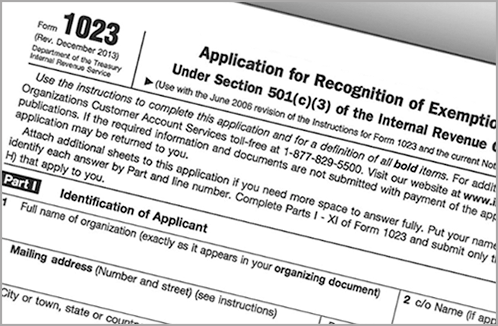Nonprofit organizations that dedicate their resources to charitable, religious, scientific, or educational purposes may apply for 501(c)(3) federal tax exemption as a public charity. In doing so, such organizations become eligible for certain benefits related to tax status, donor and funder preference, and public policy advocacy.
At the same time, obtaining and maintaining 501(c)(3) also comes with potential disadvantages which may bear consideration.

Advantages of Receiving 501(c)(3) Charitable Nonprofit Status
Tax Exemption/Deduction
Organizations that qualify as public charities under Internal Revenue Code 501(c)(3) are eligible for federal exemption from payment of corporate income tax. Once exempt from this tax, the nonprofit will often be exempt from similar state and local taxes. If an organization has obtained 501(c)(3) tax-exempt status, an individual’s or company’s charitable contributions to this entity are tax-deductible.
Eligibility for public and private grants
Many foundations and government agencies limit their grants to public charities. Nonprofit organizations also can offer tax deductions to individuals or businesses that give charitable contributions.
Formal structure
A nonprofit organization exists as a legal entity in its own right and separately from its founder(s). Incorporation puts the nonprofit’s mission and structure above the personal interests of individuals associated with it.
Limited liability
Under the law, creditors and courts are limited to the assets of the nonprofit organization. With some exceptions, the founders, directors, members, and employees are not personally liable for the nonprofit’s debts. With that said, a person cannot use the corporation to shield illegal or irresponsible acts on their part. Also, board directors have a fiduciary responsibility to perform their roles in the nonprofit’s best interests, with a failure to do so potentially resulting in their being held liable.
Lower Postal Rates
501(c)(3) nonprofits are eligible for lower postal rates on third class bulk mailings through the United States Postal Service.
Access to Lobbying
Can make the 501(h) election (with the exception of private foundations and churches, who may not make the 501(h) election). Under the federal tax code, all 501(c)(3) public charities are allowed to lobby. The 501(h) election provides clear guidance on the definition of lobbying for 501(c)(3) public charities and on how much money may be spent on lobbying.
Disadvantages of Receiving 501(c)(3) Charitable Nonprofit Status
Initial and Ongoing Costs
Creating a nonprofit organization takes time, effort, and money. Fees are required to apply for incorporation and tax exemption with state and federal entities, as well as maintaining such status through annual renewals. In some cases, nonprofits may need the services of an attorney, accountant, or other consultant, which will most likely come with additional costs.
Ongoing Paperwork
As an exempt corporation, a nonprofit must keep detailed records and submit annual filings to the state and IRS by stated deadlines in order to keep its active and exempt status.
Shared Control
While individuals who create nonprofits often like to shape and control their creations, personal control of a 501(c)(3) nonprofit is limited. A nonprofit organization is subject to laws and regulations, including its own articles of incorporation and bylaws.
Public Scrutiny
A core function of a charitable nonprofit is to serve the public interest. As such, a nonprofit’s finances are open inspection by the public. The public may request and obtain copies of a nonprofit’s state and federal filings to learn about salaries and other expenditures.